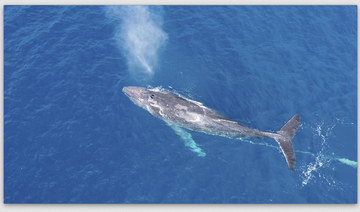DUBAI: Twitter users have been left confused after US First Lady Melania Trump liked a tweet Tuesday that implies a failing relationship between her and President Donald Trump.
The first lady – or whoever runs her official personal account @MelaniaTrump – liked a tweet by blogger Andy Ostroy.
“Seems the only #Wall @realDonaldTrump’s built is the one between him and @FLOTUS #Melania #trump,” he tweeted late Tuesday.
Seems the only #Wall @realDonaldTrump's built is the one between him and @FLOTUS #Melania #trump pic.twitter.com/XiNd2jiLUF
— Andy Ostroy (@AndyOstroy) May 3, 2017
The tweet could be seen in the “likes” section of Melania Trump’s Twitter account but was quickly deleted.
sorry boss can't come to work tomorrow, gonna be too busy screaming at the fact that melania liked this tweet pic.twitter.com/IhOORDfvbK
— Bob Vulfov (@bobvulfov) May 3, 2017
Sharp-eyed Twitter users, however, did not let it slip and have shared a host of reactions and tongue-in-cheek offers of help to the first lady.
Some were taken aback.
@AndyOstroy @realDonaldTrump @FLOTUS Poor thing probably looking for help
— FWDCROCBLU (@fwdcrocblu) May 3, 2017
While others offered help.
Melania light a candle in the Whitehouse at midnight for help! #saveher https://t.co/MtN8BXRJ7g
— (@btdnotions) May 3, 2017
Others did not fail to see the funny side.
I just clicked on Melania Trump's 'likes' and now I'm officially dead. pic.twitter.com/HN2Tb6dNH6
— Imani Gandy (@AngryBlackLady) May 3, 2017


























